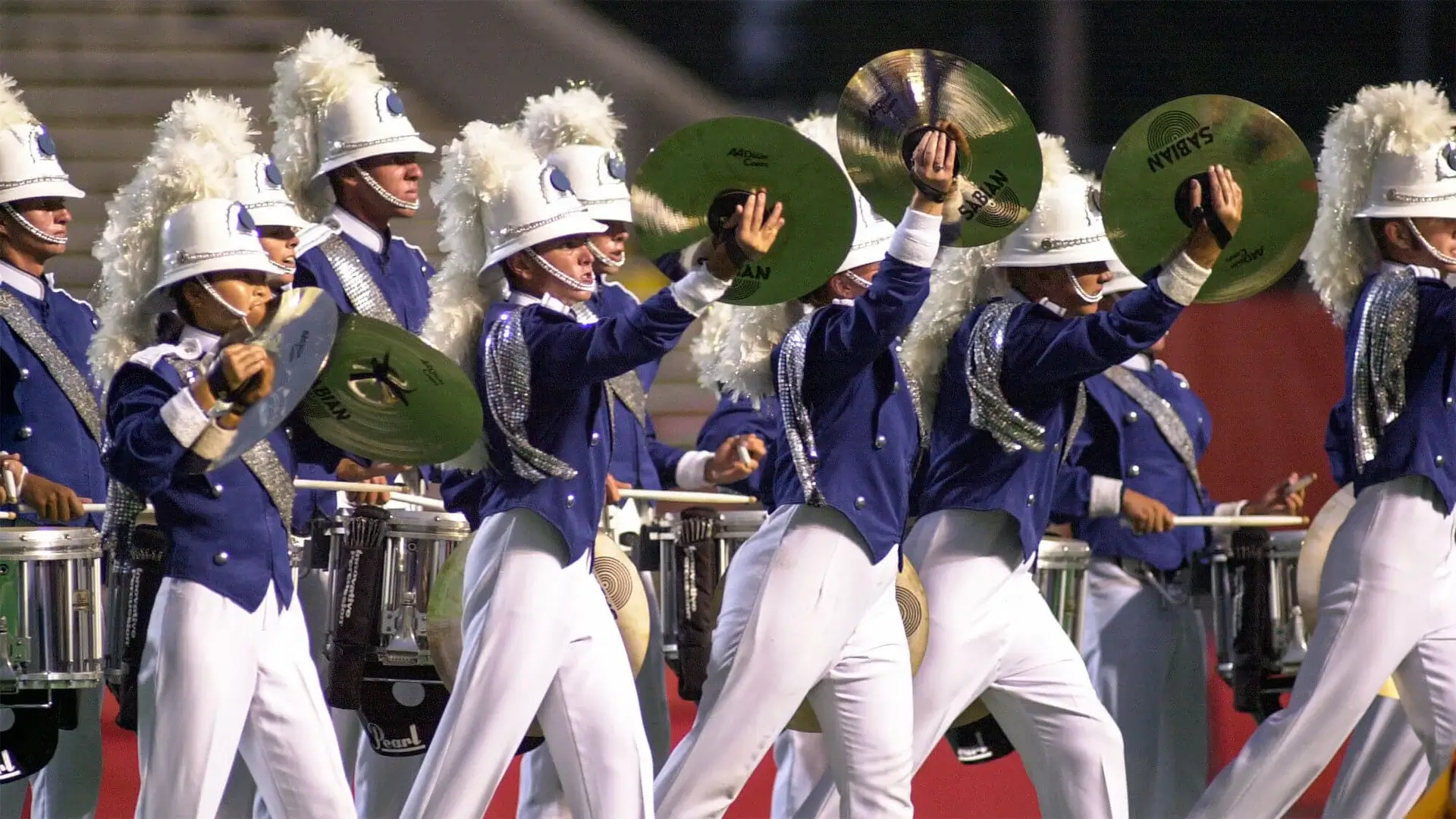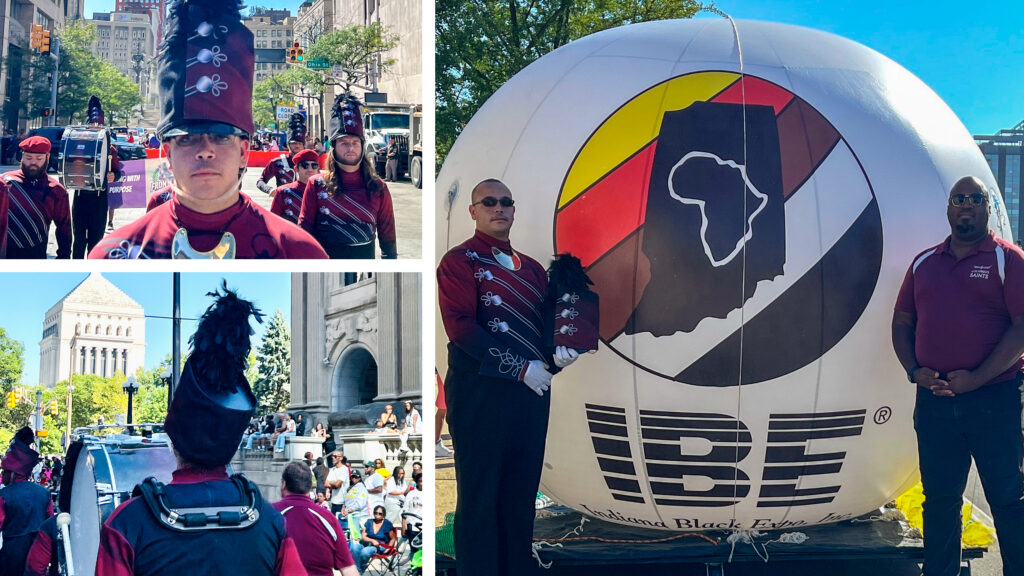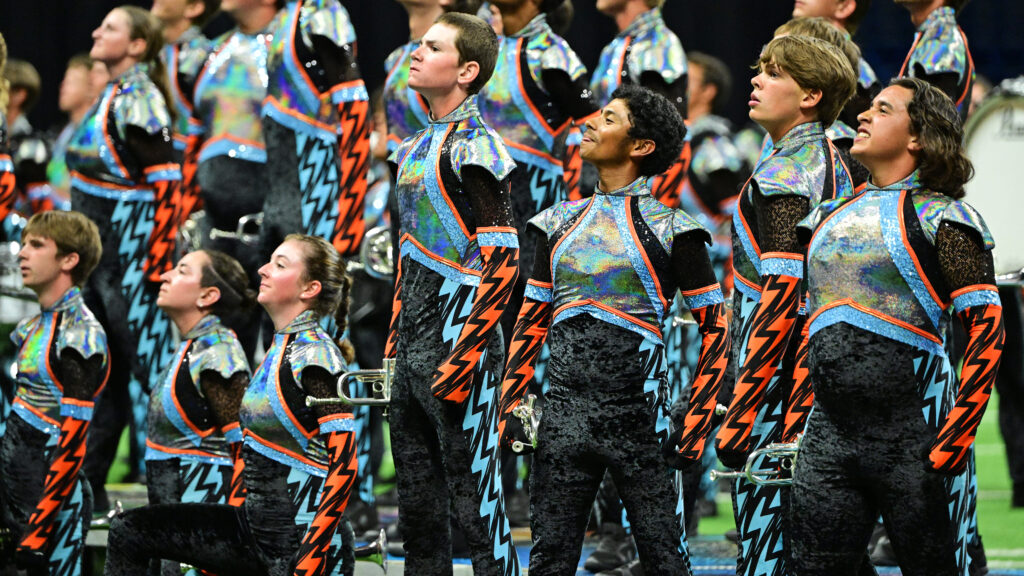For Drum Corps International’s 30th anniversary in 2002, fans returned to the University of Wisconsin-Whitewater stadium for the Division II & III (Open Class) Championship, where the first two DCI World Championships were held three decades earlier.
Afterward, everyone focused on the University of Wisconsin’s Camp Randall Stadium in Madison for three days of Division I (World Class) competition.
In seventh place, Bluecoats performed a show titled “Urban Dances,” inspired by life in the big city. The show was set in three tableaus; “Morning Rush,” “Reflection,” and “Day’s End.”
The city woke up to the first glimmers of the rising sun in “Sunrise,” an original composition by the corps’ creative staff. The opening drill formation, in the upper left corner of the field, put the brass players and percussionists in a quarter arc around the color guard performers, like the radiant rays of the sun emanating from the life-giving source.
The mallet keyboards in the front ensemble percussion section quietly started the music as the guard members ran through the arcs of horns, the first arc of flags purple as the morning dusk, followed by red as the sun started to poke over the horizon and then orange as the sun began to shine. A single bright yellow flag then popped up as the sun was fully blazing upon the concrete of the city.
Chris Brubeck’s jazzy “Paradise Utopia” is the first movement from his “Concerto for Bass Trombone.” Its propulsive vibrant melodies captured the caffeinated challenge of commuting, bursting with the energy of a city at the start of the day. In 1991, a youth orchestra in Connecticut asked him to compose the work for its high school students. Brubeck wrote, “Paradise Utopia [is] sizzling with American expansionist energy. I imagine a Donald Trump-like figure maniacally rebuilding the New York skyline.”
Playing to the theme, the Bluecoats’ “workers” were fully animated and perhaps enhanced by the caffeine, hurriedly getting through the workday in order to get out for a little midday relaxation.
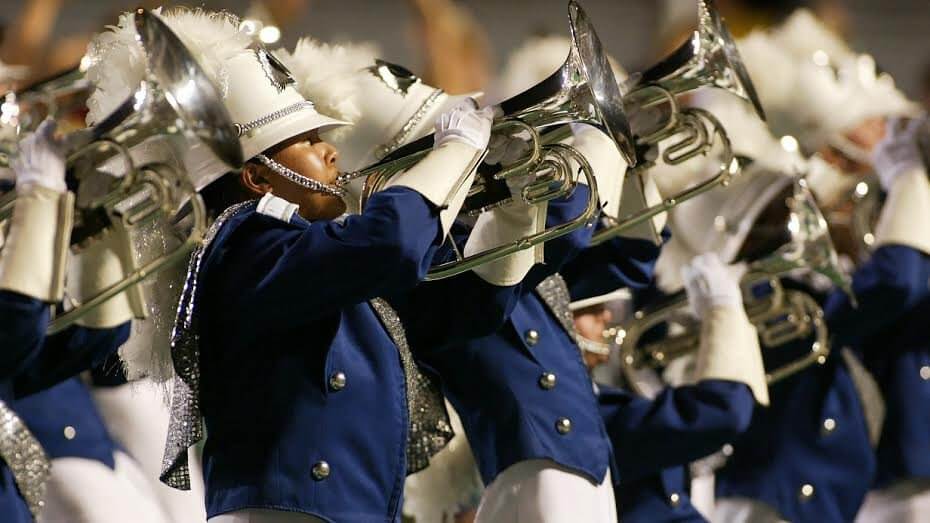
Midday, in the “Reflection” segment, the city’s workers fled to the serenity of a city park to bask in its peace and quiet. Music was “New World Overture” from “Dancer in the Dark,” a 2000 Danish film about a Czech immigrant. Björk, Sigurdsson Sigurjon and Trier Lars wrote the piece. Björk is an Icelandic singer who was first known as the lead singer for the Sugarcubes before starting her solo career in 1993.
In the movie, Björk played the part of an immigrant who moved to Seattle in 1964 with her son. Whenever things got too intense, she would slip into daydreams as a form of escape, very much akin to the workers in Bluecoats’ show escaping to a city park to clear their minds.
During the beginning of the piece, the horn line and guard members reached to the sky as if doing meditative yoga stretches in the park. After the piece built to its grand climax, the volume dropped down as the workers tried to get in one last moment of repose before heading back to work.
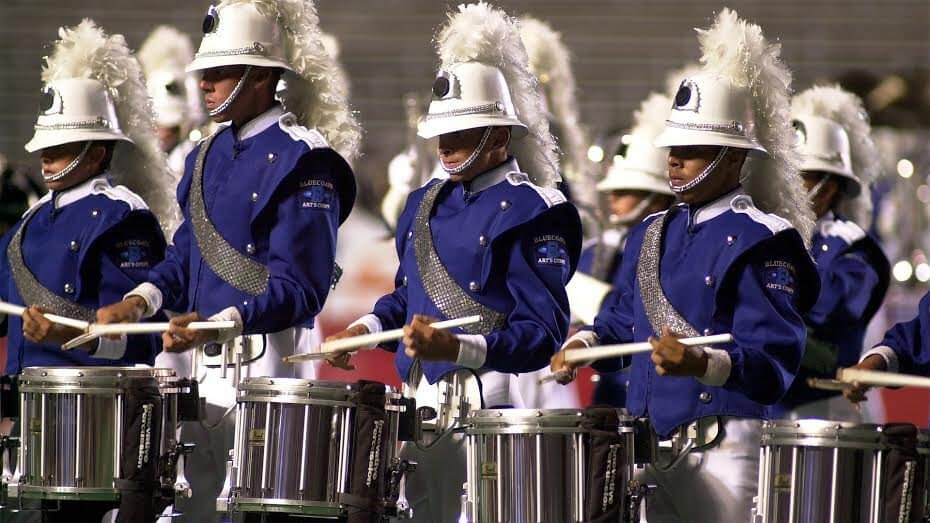
In the show segment titled, “Day’s End,” the workers had to contend with nerve-wracking traffic jams, heard in the high-intensity drive of Michael Daugherty’s “Pedal to the Medal,” the second movement to his “Motor City Triptych” of 2000. “Motor City” is the nickname of Detroit, where so many of America’s autos have been produced and assembled. Daugherty described the piece as representing someone pushing the gas pedal to the floor, propelling the vehicle to its highest attainable speed.
Lots of confusion was heard at the beginning of the piece, including a traffic cop whistle as the brass players scattered out of a block diamond drill formation to create a momentary traffic nightmare. Yellow flags were imprinted with the image of a black and white checkerboard. During a short break in the music, the corps members yelled out, “Taxi,” hailing a cab to take them to their favorite nightclub.
The low brass section then played a sort of funky disco figure, prompting the color guard members to drop their flags and dance along. Heading into the disco segment, the corps yelled their approval by shouting, “Oh, yes!” The city’s nightclub scene rewarded all for putting up with the challenges of the day, allowing them to release some steam before heading home to set the alarm clock for the next day.
2002 DCI World Championship Awards Ceremony

Michael Boo was a member of the Cavaliers from 1975-1977. He wrote about the drum corps activity for more than 35 years while serving as a staff writer for various Drum Corps International projects. During his lifetime Boo wrote for numerous other publications including an honors-winning book on the history of figure skating. He also was an accomplished composer. Boo passed away in 2020 and was inducted into the DCI Hall of Fame posthumously in 2021.


